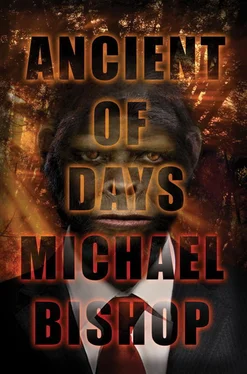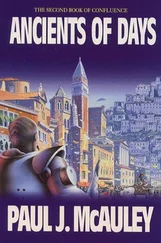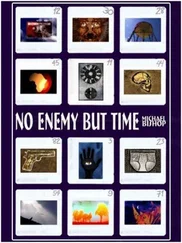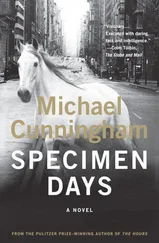“Look,” Caroline said, “my car is still in front of the Montarazes’. Tomorrow when you and RuthClaire visit Adam, one of you can drive my VW and leave it near the sociology building.” She handed me her keys. “I would like to see you again. It’s just that this isn’t the time, Paul. I can’t believe you think it is.”
“Life’s short, Miss Hanna. This proves it.”
“Ah, another disciple of the carpe diem approach.” Her voice took on a brittle edge: “You think they’ll kill him?”
“They may.” My knuckles whitened as I tightened my grip on the steering wheel. “Puddicombe may, at least. It’s hard for me to believe Nancy’d go along with him on that score. I don’t know what he did to entice her up here, to get her to go punk—but they do share a common pain.”
“The fact that Teavers died.”
“Right. Her husband. His friend. I thought Nancy was free of that taint, though. I thought she’d managed to work through it all unscathed.”
What Caroline answered struck me as a sorrowful rebuke: “People who work through everything unscathed are rare. There may be nobody like that at all, only good pretenders.”
“Maybe so.”
“Could we trust an unscathed person, Paul? He—or she—wouldn’t be human.”
I looked at her sidelong. “The trouble is, you can’t trust a scathed person, either. You can’t trust anybody.”
“No,” Caroline murmured. “You can’t trust anybody.”
We rode for a time. Then I began to speculate on the kidnapping. Puddicombe had been hiding out for a year, eluding the police and plotting revenge. On the night of E. L.’s disappearance into the brick kiln, he had probably lit out for Alabama in his buddy’s truck. There, after ditching the vehicle, he had lain low, probably with the active aid of fellow Klan members. Maybe he had left the Southeast completely, striking out for the Rockies or the California coast. But if he had, he had almost certainly acquired another car. Teavers’s pickup would have been a red flag to every highway patrolman between Opelika and Amarillo. Or maybe he had simply disguised himself—by growing a beard, say—and ridden the bus.
Eventually, though, Puddicombe had returned from his fugitive exile, migrating as if magnetized to Georgia’s capital city. In Atlanta, after all, it would not have been hard for him to find work as a dishwasher or a garage mechanic. The biggest threat to his job would have lain in the likelihood of someone from Beulah Fork catching sight of him, but if his work had kept him, so to speak, backstage, that likelihood would have been a skimpy one. On the street, a beard and sunglasses would have preserved his cover. To trip himself up, he would have had to run a traffic light or neglect paying a bill. And so far, Puddicombe had avoided those kinds of trip wires.
“How would he have involved Nancy?” Caroline said.
Probably a letter, I told her. He would have written only once, and he would have stipulated a meeting somewhere between Atlanta and Beulah Fork. At a roadhouse or a small-town cafe, he would have pressed his case, playing on Nancy’s submerged bitterness and arguing the need to bring about E. L.’s posthumous vindication. Initially, she may have resisted these arguments, but at later rendezvous, each new meeting arranged at the one before, she would have begun to relish the idea of avenging her late husband—maybe not by killing anyone, but by bringing E. L. back to life as a worrisome force in the Montarazes’ undeserved paradise of love and success. Indeed, she and Craig may have fallen in love. Once, after all, E. L. and Craig had been as close as brothers, and somewhere in the Bible it was written that a man ought to wed his brother’s widow to protect her person and champion her causes.
“You know the Bible?” Caroline asked.
“Only by hearsay. The same way Puddicombe would know it. In Beulah Fork, distortions of it contaminate everyone’s thinking, mine included. We have a bountiful legacy of high-minded misquotation.”
“You think they’re lovers?”
“If not lovers, sweethearts. In this day and age, probably lovers.”
“Why so certain?”
“Nancy’s only eighteen. She was widowed at seventeen. Most of her school chums have moved from Beulah Fork, or married, or both. When she told me she was leaving the West Bank, she said it was to ‘seek her fortune.’ Male chauvinist pig that I am, I took that as a code word for husband. She was bored, lonely, and vulnerable. Why wouldn’t she fall in love with Craig?”
“Or he with her?”
“Right. Craig was E. L.’s twin in a lot of ways, and Nancy is a pretty little girl, or was, anyway. They’re both probably fighting to make sense of events and attitudes they haven’t handled all that well by themselves.”
“Nancy was doing all right, wasn’t she?”
“Until Craig contacted her again.”
“Do you think they’ve been following RuthClaire and Adam around, waiting for an opportunity like tonight’s?”
“Looks like it.”
“Then tonight had to be a dream-come-true for your… well, your Puddicombe Conspiracy. Everything fell into place. Nancy was able to walk off with Paulie as easily as a kid steals an apple from a produce bin. Doesn’t that strike you as—” she hunched her shoulders, shivering in recollection— “weird?”
“But everything didn’t fall into place. Bilker came along. You and I came along. They had to make some of their own luck, and they did that. Nancy’s costume, her choice of the balloon handout as the best time to approach us, their goddamn perfect getaway.” I took a quick glance at Caroline. “What are you trying to imply? That there’s something fishy about this business?”
“Paul, please don’t take this wrong—”
“God save me, take what wrong?”
“I don’t know RuthClaire. I don’t know Adam. For that matter, I really don’t know you. It crossed my mind—just briefly—that this might be a, you know, a publicity stunt. To promote their art and David Blau’s gallery.”
“Jesus Christ!”
“Look, Paul, I know it’s backasswards and egotistical, but for a moment I was afraid I was being made sport of.”
“Sport of? What do you mean, sport of ?”
“Not after the police arrived. And not really before, either, but nothing that happened at the club seemed real. I felt like an outsider, someone not getting the joke.”
“What cynicism! Five minutes ago you were berating me for hoping for a friendly fuck on the same evening my godson gets abducted!”
“Paul, I was confessing a doubt I had, not leveling an accusation. You’re turning this into something it isn’t.”
I was thoroughly confused. Our conversation had gone off the rails with her plea not to take her next remark wrong. Had I taken it wrong, or had she impugned RuthClaire and Adam’s integrity as artists and parents? I thumbed an antacid tablet out of a roll in my pants pocket and slipped it under my tongue.
“Take me home, Paul. You don’t need me at the hospital. Adam doesn’t need me there, either. I’m sorry this has happened—deeply, deeply sorry.”
I took her home, to an apartment complex on Clifton, not far from the Emory campus. My attempts to get her talking again met with monosyllabic rebuffs. She had wounded me by taking potshots at my friends. I had wounded her by calling her to account for her meanness and vanity.
Caroline’s apartment building had pinkish stucco walls, gables with casement windows, and rustic Tudor trim. I parked beside the walk to her front porch, but before I could even undo my seat buckle, she got out. Then she leaned back down and gave a harsh barking little laugh.
“What’s that supposed to mean?”
Читать дальше












